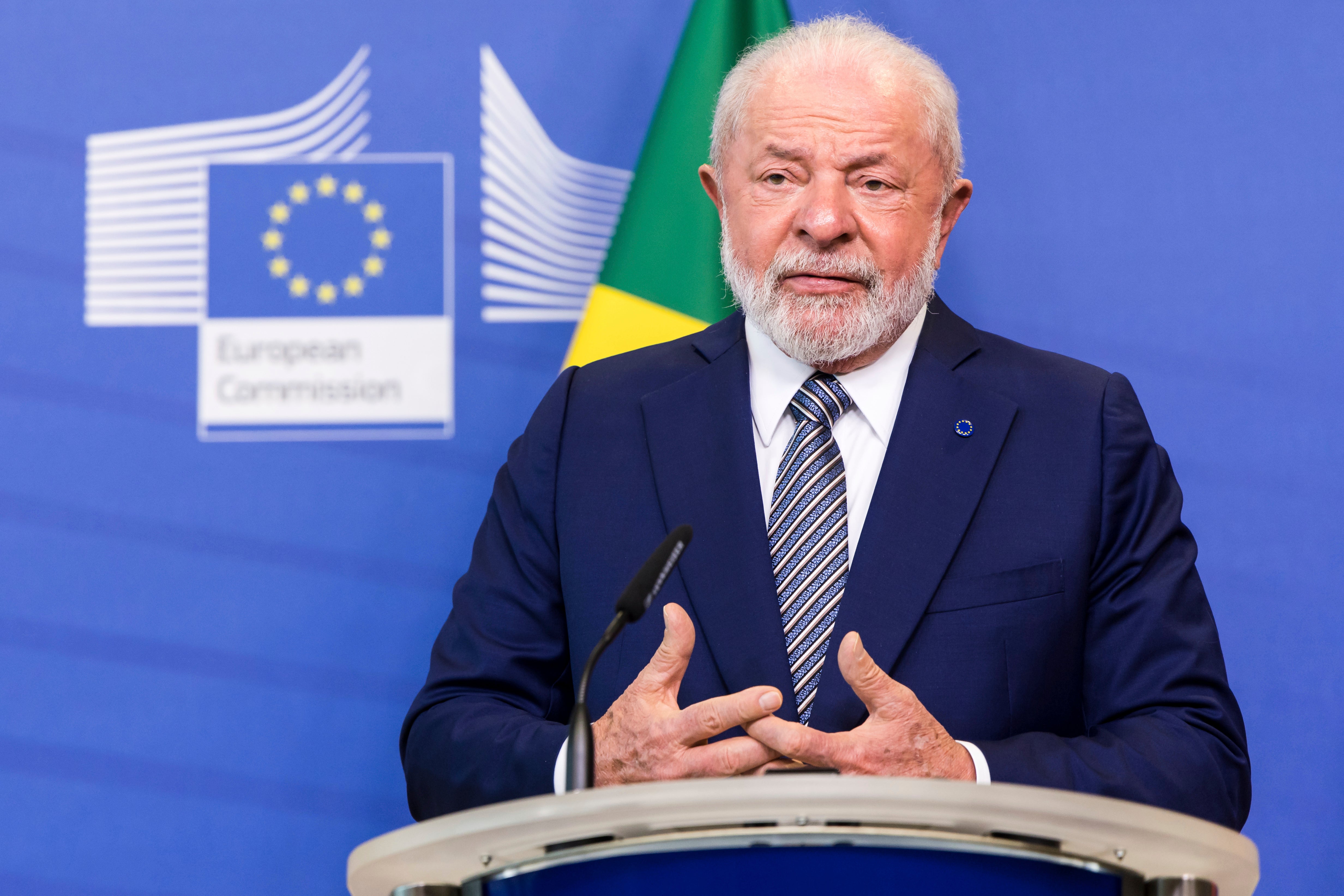Brazil's Lula voices support for more countries joining BRICS group
Brazilian President Luiz Inácio Lula da Silva says he supports more countries joining the BRICS group of large developing nations, which currently includes Brazil, Russia, India, China and South Africa

Brazilian President Luiz Inácio Lula da Silva said Wednesday that he supports more countries joining the BRICS group of large developing nations, which currently includes Brazil, Russia, India, China and South Africa.
The group will hold a summit in Johannesburg from Aug. 22 to 24. The meeting will have in hand a list of others desiring to join ther group.
“Possibly, in this meeting, we can already consensually decide which new countries can join BRICS,” Lula told international journalists in the capital, Brasilia. “I am of the opinion that as many countries want to enter, if they are in compliance with the rules we are establishing, we will accept the countries' entrance.”
Lula's comments came hours after Reuters reported that Brazil has resisted expanding the group's membership. It quoted unidentified Brazilian diplomats as voicing concern that adding more nations could lessen the influence of the existing members.
Around 20 countries have formally applied to join the bloc, Brazilian Foreign Affairs Minister Mauro Vieira said after Lula's session with journalists. AMong them are Argentina, United Arab Emirates, Saudi Arabia, Indonesia, Iran and Venezuela, he said.
Vieira said that all BRICS members are interested in making an effort to accept other countries, but parameters still need to be discussed and there needs to be mutual agreement among leaders.
The summit in Johannesburg will occur as China and Russia, facing isolation by the U.S. and European Union, seek to expand their economic influence in developing countries. Russian President Vladimir Putin will join the summit via video call, while all other heads of state are expected to attend in person.
Since taking office, Lula has repeatedly bucked the existing Wester-dominated international structure.
He has rejected the U.S. and EU's shared position of supporting Ukraine in its fight against Russia’s invasion, refusing to provide arms to Ukranian forces and pushing for peace talks to bring the war to an end.
He has called for an end to the dominance of the U.S. dollar in international trade and supported a common currency for commerce within the South American bloc Mercosur and for trade among BRICS nations. He has also taken swipes at the International Monetary Fund.
Lula repeated those positions Wednesday.
“Why does Brazil need the dollar to trade with China or Agentina? We can trade in our currency,” he said.
He went on to hail the prospects of the Chinese-backed New Development Bank, commonly known as the BRICS bank, which is funding infrastructure projects in Brazil and elsewhere in the developing world.
“The BRICS bank must be effective and more generous than the IMF. Which is to say, the bank exists to help save countries and not to help sink countries, which is what the IMF does many times,” he said.
Lula also criticized the U.N. Security Council, saying its members have been responsible for starting wars despite the body's stated mission of maintaining peace and security. Brazil has been seeking a permanent seat on the council for decades.
Bookmark popover
Removed from bookmarks